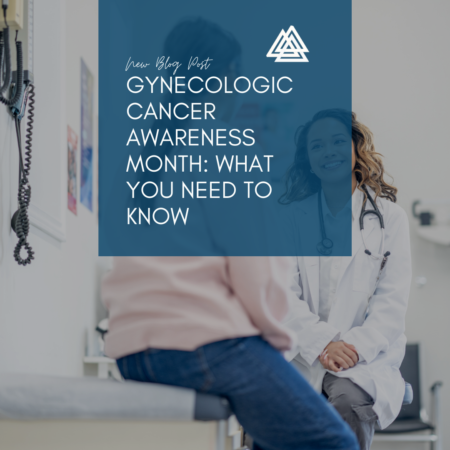 September is Gynecologic Cancer Awareness Month, a time dedicated to raising awareness about the cancers that affect women’s reproductive organs. These cancers include cervical, ovarian, uterine, vaginal, and vulvar cancers. Understanding the risks, symptoms, and preventive measures associated with gynecologic cancers is crucial for early detection and treatment.
September is Gynecologic Cancer Awareness Month, a time dedicated to raising awareness about the cancers that affect women’s reproductive organs. These cancers include cervical, ovarian, uterine, vaginal, and vulvar cancers. Understanding the risks, symptoms, and preventive measures associated with gynecologic cancers is crucial for early detection and treatment.
Types of Gynecologic Cancers
There are five main types of gynecologic cancers, each affecting different parts of the reproductive system:
Cervical Cancer: This cancer begins in the cervix, the lower part of the uterus that connects to the vagina. It is often caused by the human papillomavirus (HPV), a common sexually transmitted infection. Regular Pap smears and HPV testing can help detect cervical cancer early when it is most treatable.
Ovarian Cancer: Ovarian cancer affects the ovaries, which produce eggs and hormones. It is often called the “silent killer” because its symptoms are vague and can be easily overlooked. Symptoms may include bloating, pelvic pain, and changes in appetite. Unfortunately, ovarian cancer is often diagnosed at an advanced stage, making it more difficult to treat.
Uterine (Endometrial) Cancer: This cancer begins in the lining of the uterus, known as the endometrium. It is the most common gynecologic cancer in the United States. Symptoms include abnormal vaginal bleeding, pelvic pain, and pain during intercourse. Early detection through regular gynecologic exams is important for effective treatment.
Vaginal Cancer: Vaginal cancer is rare and occurs in the vagina, the canal leading from the cervix to the outside of the body. Symptoms can include abnormal vaginal bleeding, pain during intercourse, and a lump or mass in the vagina. Regular gynecologic check-ups can help in early detection.
Vulvar Cancer: Vulvar cancer occurs on the outer surface area of the female genitalia. It is also rare and can cause symptoms like itching, burning, pain, and changes in the skin color or texture of the vulva. Regular self-exams and awareness of changes in the vulva can aid in early detection.
Risk Factors and Symptoms
Several risk factors can increase a woman’s likelihood of developing gynecologic cancers, including:
- Age: The risk of gynecologic cancers increases with age.
- Family History: A family history of gynecologic or other cancers can elevate risk.
- HPV Infection: Particularly relevant for cervical cancer, HPV infection is a major risk factor.
- Obesity: Excess weight is associated with an increased risk of uterine cancer.
- Smoking: Smoking is linked to an increased risk of cervical and vulvar cancers.
Common symptoms of gynecologic cancers may include:
- Abnormal vaginal bleeding or discharge
- Pelvic pain or pressure
- Pain during intercourse
- Unexplained weight loss or changes in appetite
- Persistent bloating or abdominal discomfort
It’s important to note that these symptoms can be associated with conditions other than cancer, but it’s essential to consult a healthcare provider if any of these symptoms persist.
Prevention and Early Detection
Prevention and early detection are key to combating gynecologic cancers. Here are some steps to take:
- Regular Screenings: Pap smears and HPV tests are essential tools for detecting cervical cancer early. Women should follow their healthcare provider’s recommendations for screening schedules.
- HPV Vaccination: The HPV vaccine can significantly reduce the risk of cervical cancer and other HPV-related cancers. It is most effective when given before an individual becomes sexually active.
- Healthy Lifestyle: Maintaining a healthy weight, eating a balanced diet, and staying physically active can help reduce the risk of some gynecologic cancers. Avoiding smoking and limiting alcohol intake are also important preventive measures.
- Know Your Family History: Understanding your family’s medical history can help you and your healthcare provider assess your risk for gynecologic cancers. If you have a family history of cancer, you may benefit from genetic counseling and testing.
- Be Aware of Changes: Pay attention to your body and be aware of any unusual changes or symptoms. Early detection is crucial for successful treatment, so don’t hesitate to seek medical advice if you notice anything concerning.
Gynecologic Cancer Awareness Month is an important opportunity to educate ourselves and others about the risks, symptoms, and preventive measures associated with gynecologic cancers. By staying informed and proactive about our health, we can improve early detection and outcomes for women affected by these cancers. If you have any concerns about your risk for gynecologic cancer, speak with your healthcare provider and schedule regular check-ups to ensure your reproductive health is well cared for.
